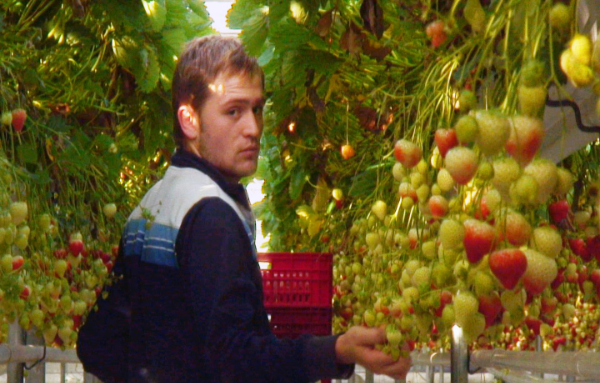TRAFOSTACJA SZTUKI W SZCZECINIE UL. ŚWIĘTEGO DUCHA 4 70-205 SZCZECIN POLAND
Du 15 octobre au 29 novembre 2020
Exhibition
With: Apart collective, Mikołaj Biberstein, Karolina Breguła, Adam Chodzko, Zuzanna Czebatul, Martyna Hadyńska, Michał Iwanowski, Flo Kasearu, Kijewski/Kocur, Małgorzata Mirga-Tas, Henrike Naumann, Grażyna Monika Olszewska/Rufus, Tanja Ostojić, Marko Raat, Slavs and Tatars, Société Réaliste, Franciszek Starowieyski, Ive Tabar, Nomeda & Gediminas Urbonas
Curator: Jakub Gawkowski

The exhibition traces the development of the dream about one undivided Europe, starting at the sentiments of the year 2004 which accompanied the enlargement of the European Union by eight countries of the former Eastern bloc.
It analyzes the subjects of labor, migration and the culture of liberal modernization fuelled by the EU. It also explores cultural geography and the changing perceptions of the borders between the “Old” and the “New” Europe. Works by artists from two recent decades as well as new commissions serve as case studies in investigating Central European countries’ transformation from “post-Socialist” to “European.”
The exhibition presents ways in which art reflected the excitements and fears around the accession of countries of the former Eastern bloc to the European Union, and shows how art expresses, negotiates and criticizes the idea of striving for a united Europe now. The exhibition asks questions about the journey so far, and about the future of the transnational community dream. The exhibition is firmly embedded in its local context as it takes place in Szczecin, a city situated near the Polish-German border. The works gathered in TRAFO’s space document activities which have taken place along the conventional border between Central and Western Europe as well as the negotiations of one’s own position relative to that border.
The exhibition also presents ways in which artists engage in the European public sphere, gathers artistic emanations of geopolitical imagination, gives voice to dissent against the liberal economic model, and traces the alternating disappearance and renewal of national and class boundaries. Die Sonne… is a journey through the recent past, through dreams, violence, and modernization.



